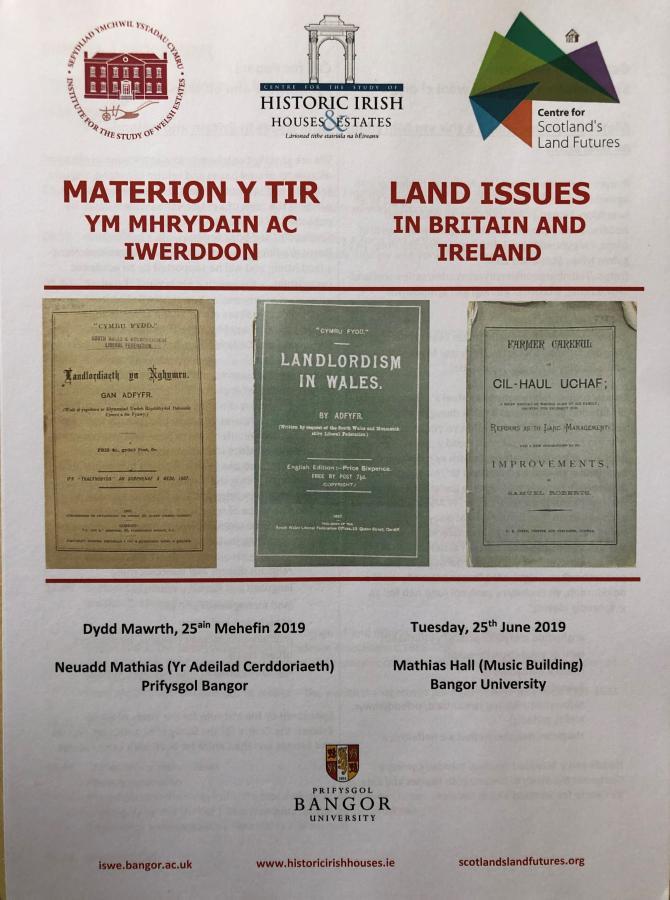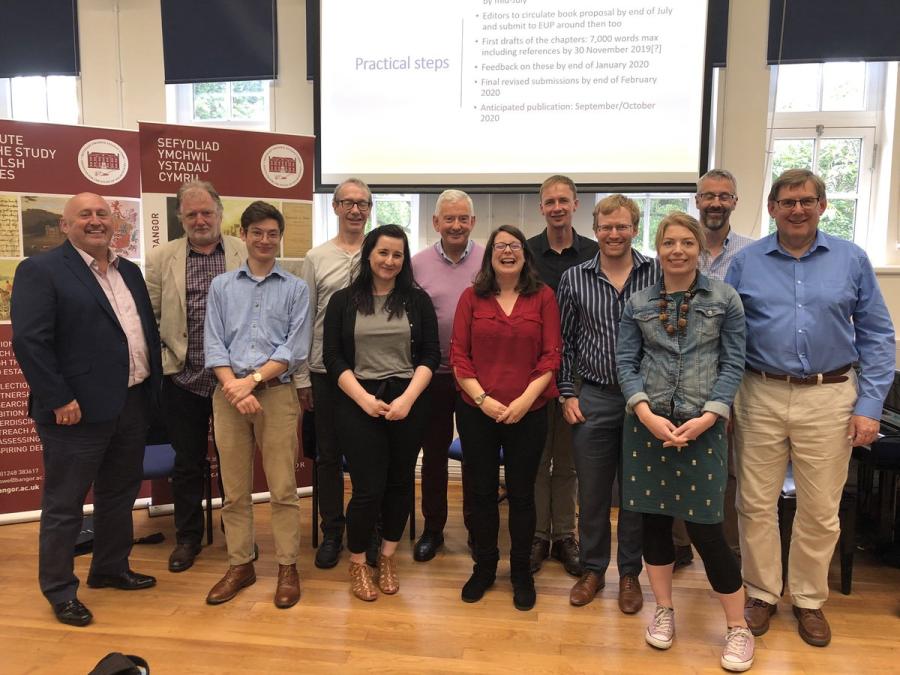
In June 2019, we partnered with the Centre for the Study of Historic Irish Houses and Estates, and Centre for Scotland’s Land Futures to host a 1-day workshop at Bangor on Land Issues in 19th century Britain and Ireland.
The project sought to interrogate the drivers behind, opposition to and impact of land reform movements up to the present day. Building on a rich body of work employing a comparative approach towards the ‘Land Question’, the series of short presentations outlined original case studies and perspectives on the histories of England, Ireland Scotland and Wales, drawing out similarities but also highlighting the distinctive nature of land issues and reform programmes across the Four Nations. Estate management, agricultural improvement, tenant experiences, radical politics, nationalism, language, legislation and landowner responses emerged as import themes from the discussions.
The workshop underpinned the development of a collection of essays, co-edited by Dr. Shaun Evans (Bangor), Dr. Tony McCarthy (Maynooth) and Prof. Annie Tindley (Newcastle) entitled Land Reform in the British and Irish Isles since 1800 (Edinburgh, 2022).
The book provides a comparative and transnational approach to land issues across Britain and Ireland, with a particular emphasis on the experience and impact of land reform movements in Ireland, Scotland and Wales.

In a review of the book for the Journal of Family & Community History, Prof. Henry French writes that:
‘This collection of essays on the politics, projects, and processes of land reform in Ireland, Scotland, Wales, and England is a very varied, timely and informative contribution to the subject [...] This volume should be essential reading for scholars and students interested in the subject, not least because it explains the legislative developments on both sides of the Irish Sea with great clarity, insightful detail and via broad chronological span.’
For Wales, the project highlighted the enormous research potentials attached to the Evidence and Report of the Welsh Land Commission, and the need for further interrogation of the ‘Welsh Land Question’ (‘Pwnc y Tir’) in the context of Welsh estate studies.
